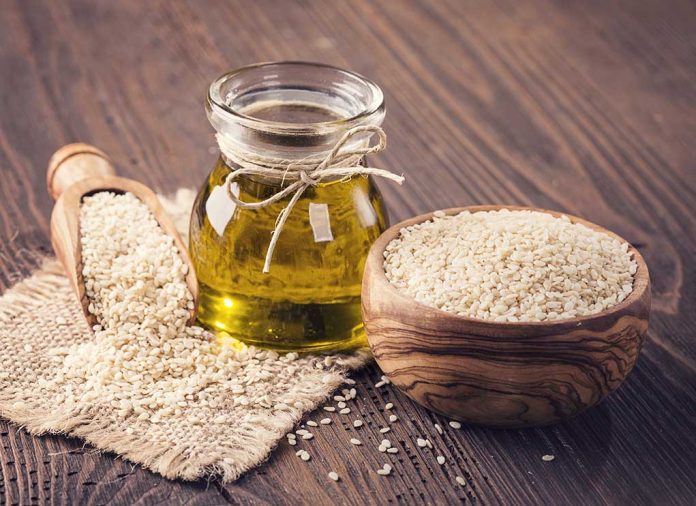
Common cooking oils widely used in American kitchens may be linked to aggressive breast cancer according to alarming new research from Weill Cornell Medicine.
Key Takeaways
- Linoleic acid, found in seed oils like soybean and safflower oil, has been linked to increased risk of aggressive triple-negative breast cancer.
- Studies show that consistent consumption of linoleic acid activates a growth pathway in tumor cells by binding to a protein called FABP5.
- Triple-negative breast cancer has a lower survival rate (77%) compared to other breast cancers (90%) and requires more aggressive treatment.
- Seed oils are high in omega-6 fatty acids and low in omega-3s, potentially creating an imbalance that leads to inflammation issues.
- Experts recommend moderation in seed oil consumption and emphasize a balanced, whole-food diet for cancer prevention.
The Cancer Connection
Groundbreaking research from Weill Cornell Medicine has identified a concerning link between a common ingredient in everyday cooking oils and aggressive breast cancer. Linoleic acid, an omega-6 fatty acid abundantly present in seed oils like soybean, safflower, canola, and corn oil, may increase the risk of developing triple-negative breast cancer. This common ingredient is also found in animal products such as pork and eggs, making it nearly ubiquitous in the American diet. The study, published on March 14, demonstrates that consistent consumption of linoleic acid could promote the growth of this particularly aggressive cancer subtype.
Understanding Triple-Negative Breast Cancer
Triple-negative breast cancer represents one of the most challenging forms of the disease. Unlike other breast cancers, it spreads more rapidly and typically requires more aggressive treatments including chemotherapy, surgery, and radiation. The survival rate for patients with triple-negative breast cancer stands at approximately 77%, significantly lower than the 90% survival rate for other forms of breast cancer. The research indicates that linoleic acid activates a major growth pathway specifically in triple-negative tumor cells by binding to a protein called FABP5, which is particularly abundant in these tumor cells.
In animal studies that further validated these findings, mice fed a diet high in linoleic acid showed enhanced tumor growth specifically in triple-negative breast cancer models. This provides compelling evidence that dietary choices may play a significant role in the progression of certain cancer types. The research team believes these discoveries could lead to new dietary and pharmaceutical strategies against breast cancer and potentially other forms of cancer where similar mechanisms might be at work.
The Problem with Seed Oils
Seed oils have become increasingly prevalent in the American diet over the past several decades. These oils include canola, corn, cottonseed, grapeseed, soy, sunflower, safflower, and rice oils – all common ingredients in processed foods and restaurant cooking. What makes these oils potentially problematic is their high concentration of omega-6 fatty acids combined with low levels of omega-3s. This imbalance can create conditions favorable to inflammation in the body, which is known to contribute to various chronic diseases including cancer.
The typical American diet often contains a much higher ratio of omega-6 to omega-3 fatty acids than is considered optimal for health. While some omega-6 fatty acids are essential for normal body function, the excessive amounts found in modern diets may be contributing to health problems. The research suggests that this imbalance might be particularly concerning for individuals who have a genetic predisposition or other risk factors for certain types of cancer, including aggressive breast cancer variants.
Practical Dietary Recommendations
Despite the concerning findings, experts are not recommending complete elimination of seed oils from the diet. Rather, they suggest a more measured approach. Dr. John Blenis, one of the researchers involved in the study, emphasized that “the findings do not warrant blanket avoidance of seed oils, but suggest moderation and selectivity, especially for high-risk individuals.” Instead of completely eliminating these oils, consumers might consider reducing their consumption and choosing alternatives when possible.
A balanced, whole-food diet remains crucial for cancer prevention and overall health. This includes plenty of fruits and vegetables, which provide natural anti-inflammatory compounds that may help counteract some of the potential negative effects of omega-6 fatty acids. Experts also recommend incorporating sources of omega-3 fatty acids, such as fatty fish, flaxseeds, and walnuts, to help balance the ratio of these essential fats in the diet. The findings highlight the importance of personalized nutritional recommendations, particularly for patients who have been diagnosed with specific cancer subtypes.









